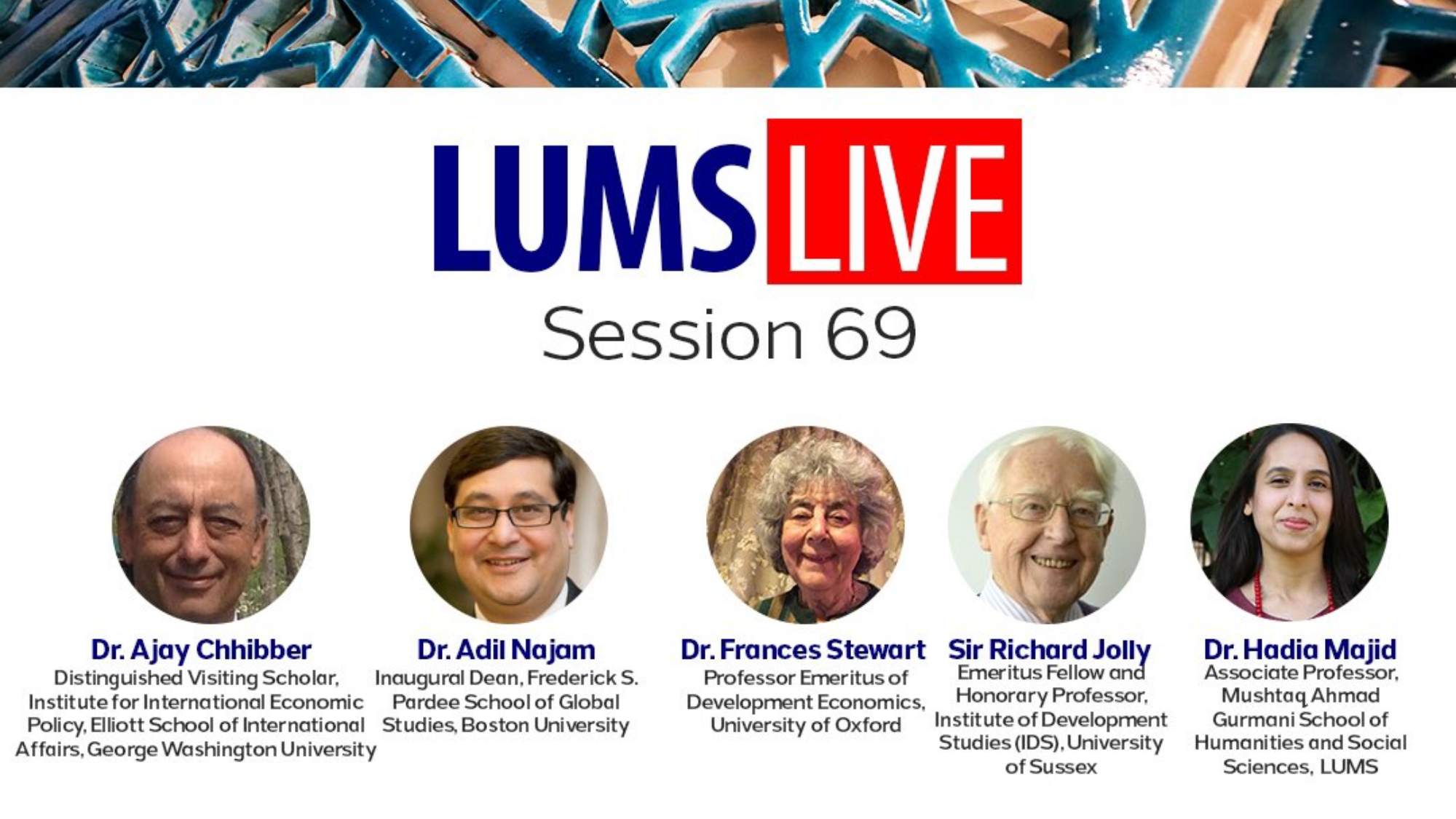Najam Joins Panel on Climate Change & Human Development

On March 15, 2021, Adil Najam, Dean of the Frederick S. Pardee School of Global Studies at Boston University, participated in a panel hosted by the Lahore University of Management Sciences (LUMS) on the importance of climate change, and how we think of and measure human development.
In addition to Najam, the event – titled “Human Development, Climate Change and the Anthropocene” – featured Dr. Ajay Chhibber, Distinguished visiting Scholar at George Washington University’s Institute for International Economic Policy, Elliott School of International Affairs; Dr. Frances Stewart, Professor Emeritus of Development Economics at the University of Oxford; and Sir Richard Jolly, Emeritus Fellow and Honorary Professor at the University of Sussex’s Institute of Development Studies. The panel was moderated by Dr. Hadia Majid, Associate Professor at LUMS’s Mushtaq Ahmad Gurmani School of Humanities and Social Sciences.
The panel discussed the implications and limitations of the Planetary-pressures Adjusted Human Development Index introduced in UNDP’s 2020 Human Development Report and examined the importance of climate change for how we think of and measure human development. The panel also used these new findings to discuss policy measures, state commitments, and societal actions that are needed to mitigate the human devastation of the planet.
In his remarks, Najam emphasized the importance of differentiating national and global impacts on the environment, measuring the global impact of climate change, and how this can play into crafting effective environmental policy.
A recording of the event can be viewed below.
Adil Najam is a global public policy expert who also served as the Vice Chancellor of the Lahore University of Management Sciences, Lahore, Pakistan. He is the Inaugural Dean of the Frederick S. Pardee School of Global Studies at Boston University and was the former Vice Chancellor of the Lahore University of Management Sciences (LUMS). His research focuses on issues of global public policy, especially those related to global climate change, South Asia, Muslim countries, environment and development, and human development. Read more about Dean Najam on his faculty profile.